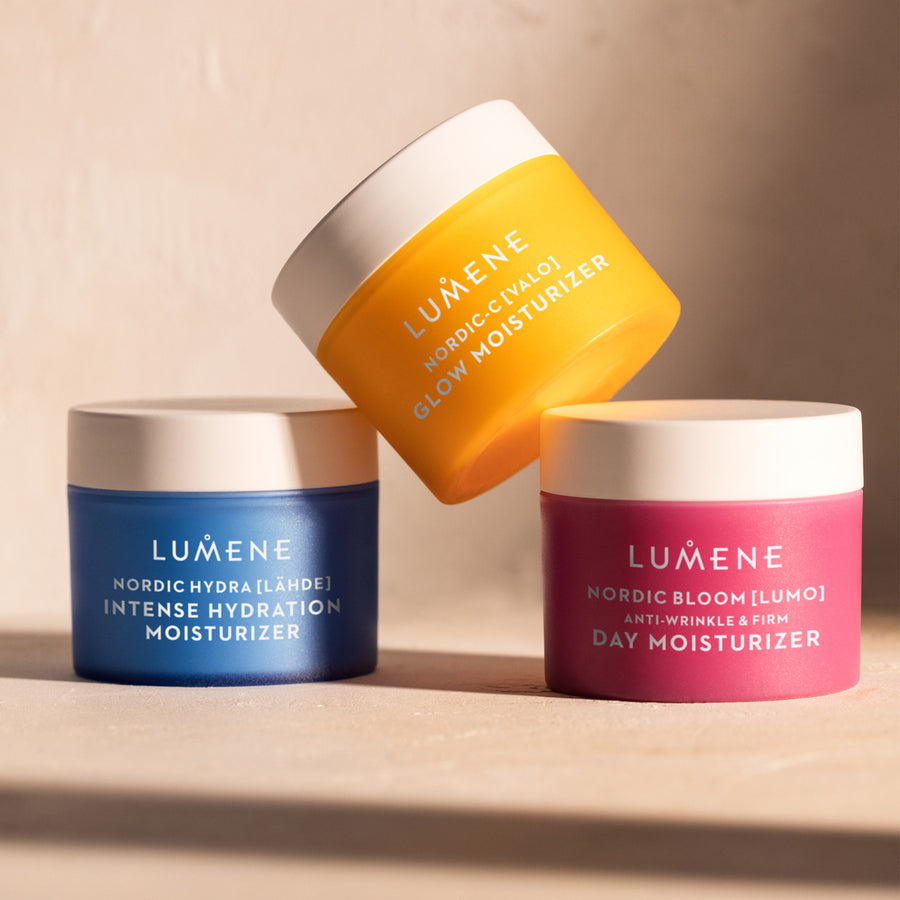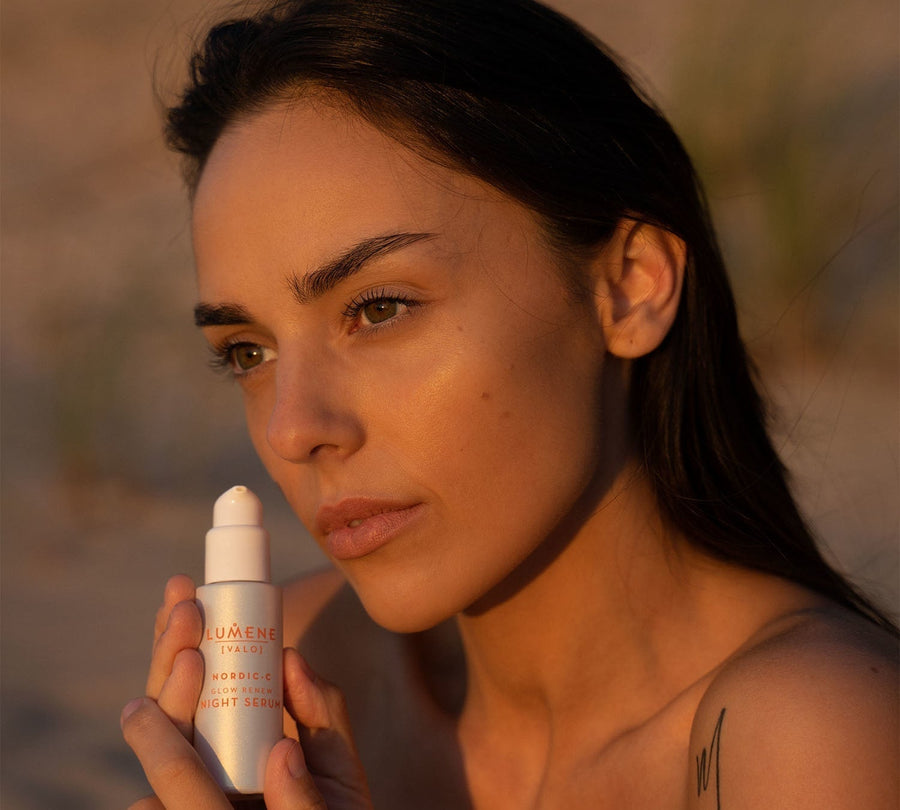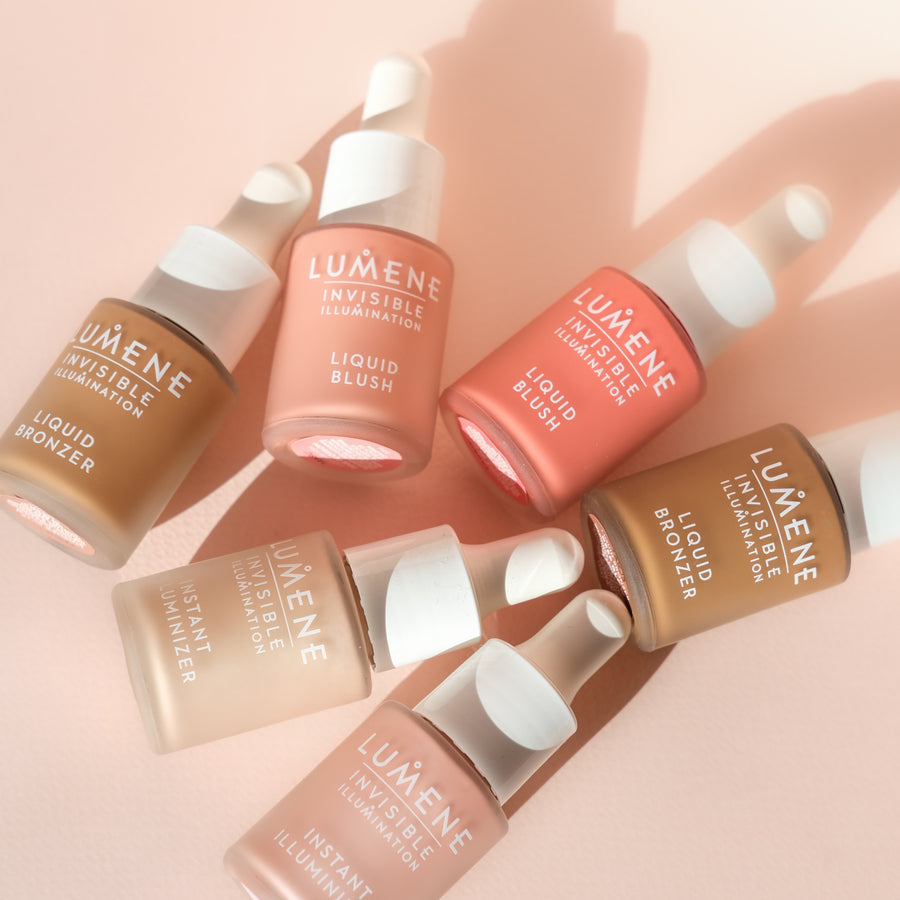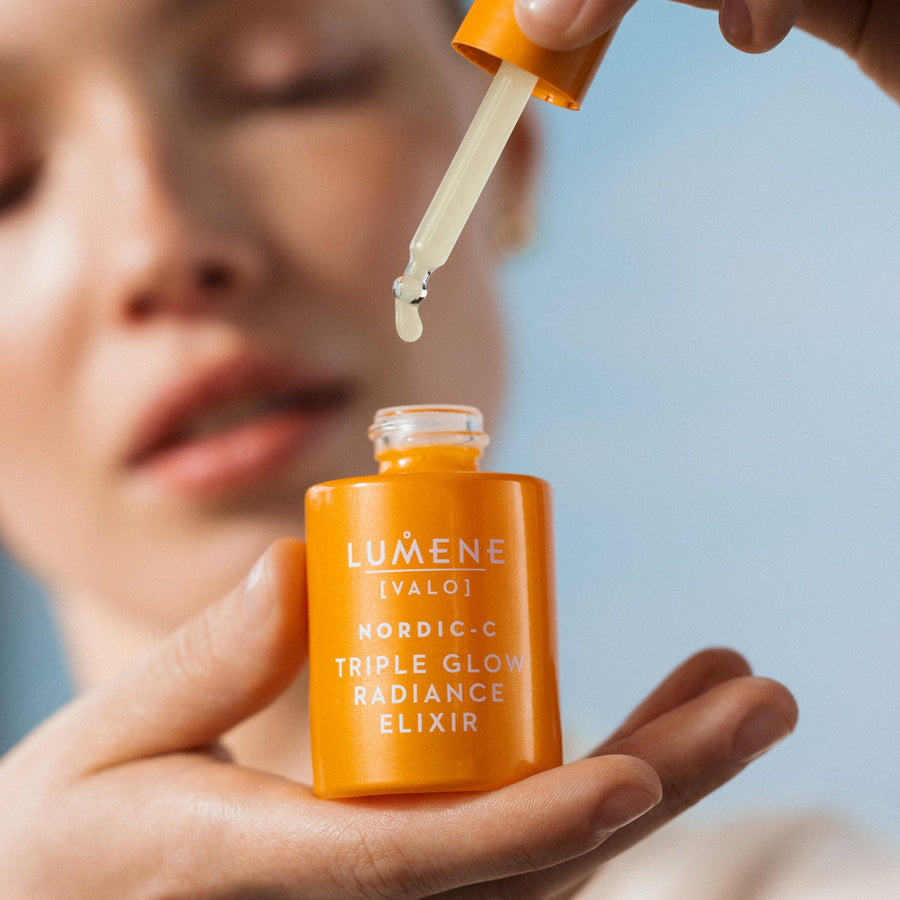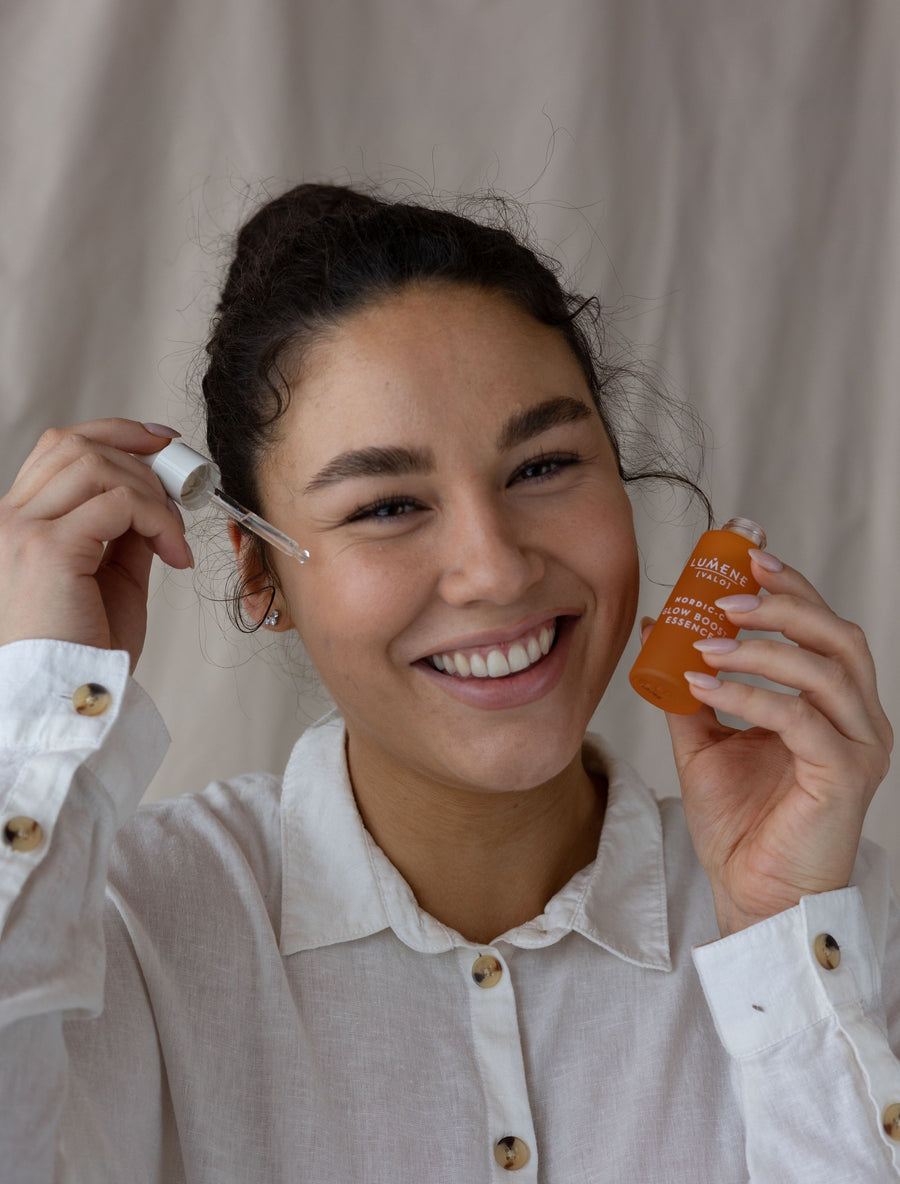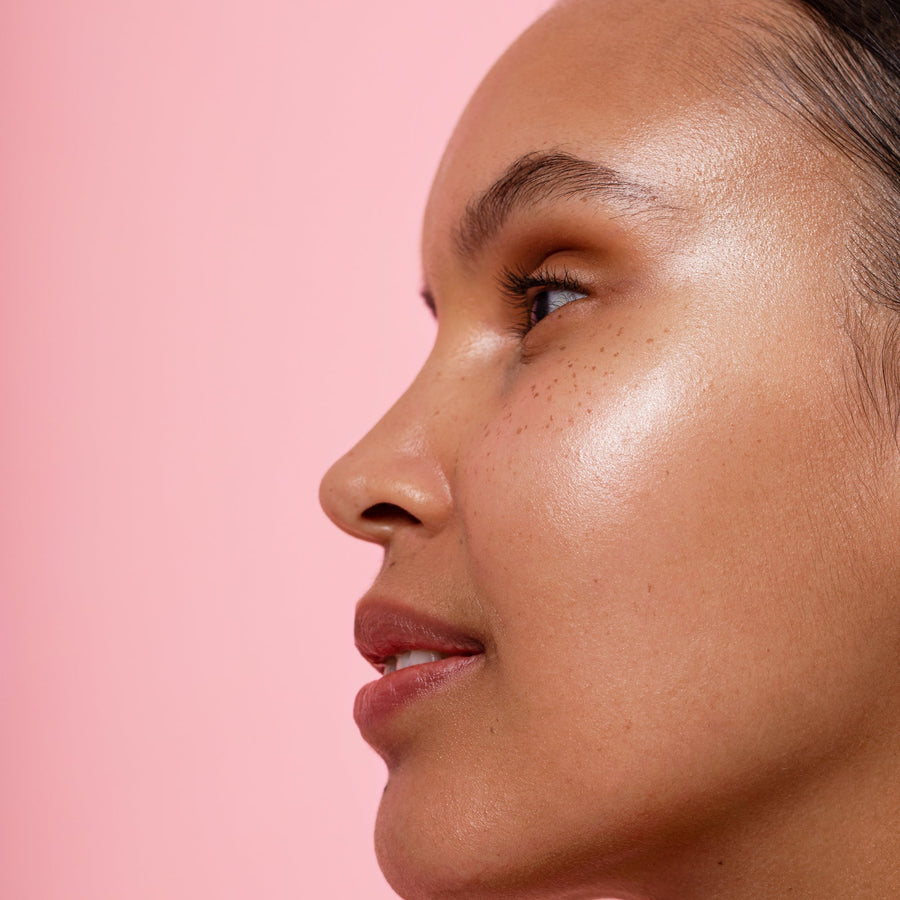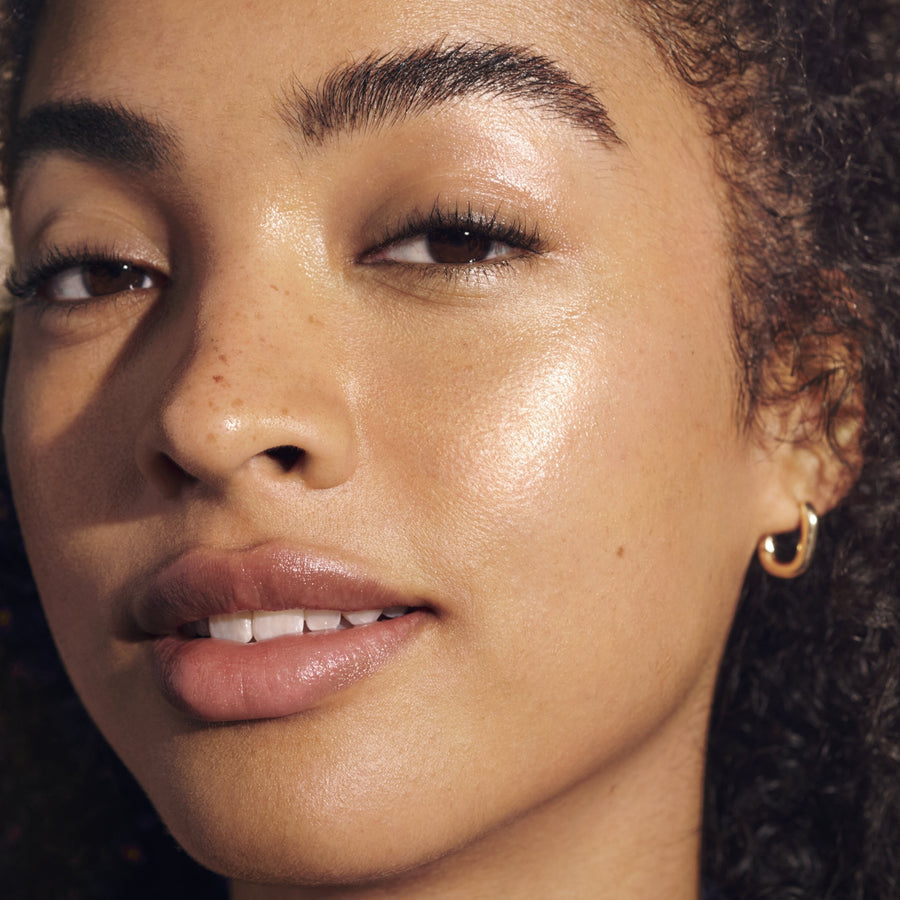The fruit acids used in cosmetics are, as the name suggests, acids that are found naturally in fruit.
Also berries, milk and sugar cane contain alpha hydroxy acids. Different acids, such as AHAs and PHAs, are used in cosmetic products. They can be used separately or together. Fruit acids are used both in cosmetics products left on the skin as well as in products that have to be removed from the skin.
Alpha hydroxy acids or AHAs include glycolic, mandelic, lactic, tartaric, citric and malic acids. Lumene uses in its products for example fermented northern cloudberries. A tenfold increase in the levels of gentle AHAs is achieved by using a slow fermentation process.
Polyhydroxy acids or PHAs are the gentlest of fruit acids making them particularly suitable for sensitive skin. With a larger molecule size than that of AHAs, PHAs absorb more slowly than AHAs and do not irritate the skin. The plant-based polyhydroxy acid Lumene uses is called gluconolactone.



